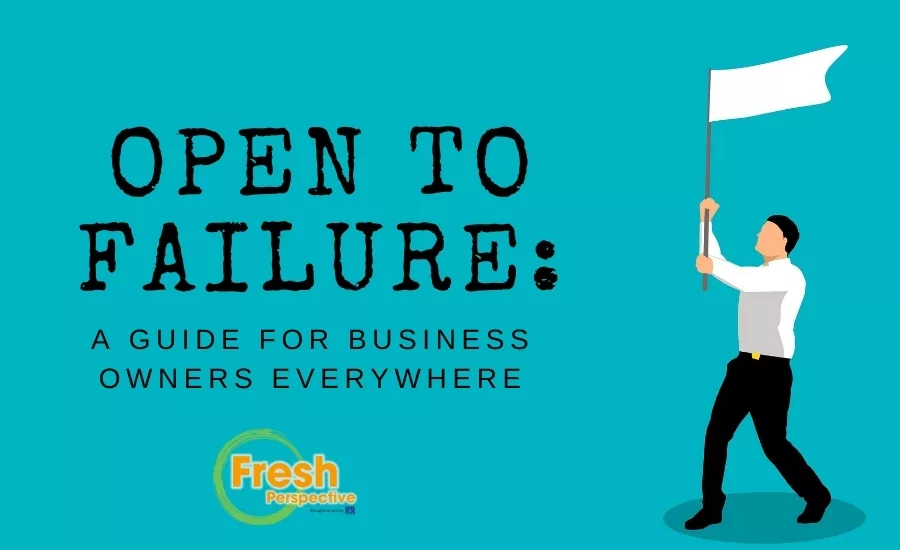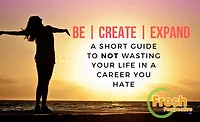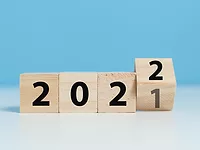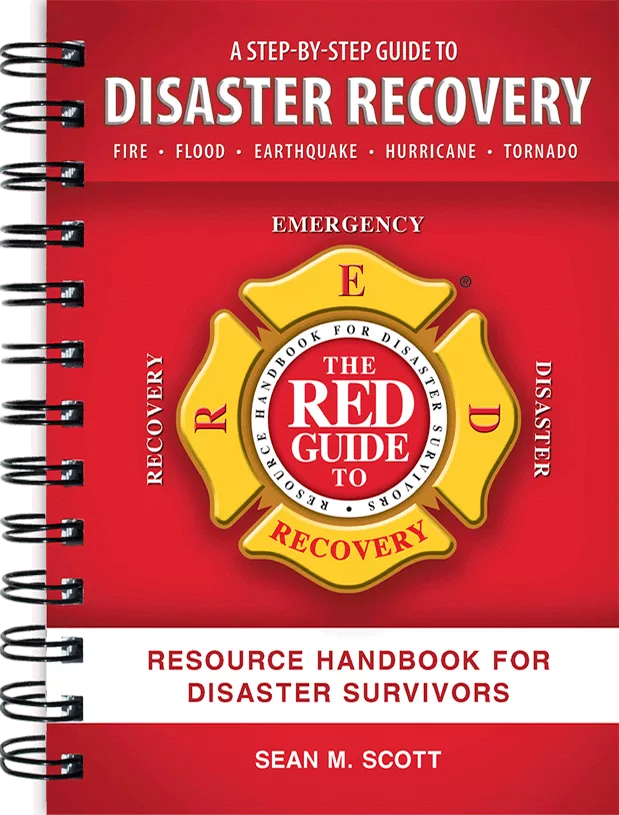Fresh Perspective
Open to Failure: A Guide for Business Owners Everywhere

You’ve heard all the inspirational stories about great visionaries who believed in themselves no matter what anyone else said.
Walt Disney was fired from the Kansas City Star because he “lacked imagination.” Oprah lost her first job as a TV news reporter because—as her employer put it—she was “unfit for television news.” Before resurrecting Chrysler, Lee Iacocca was dismissed from Ford for a series of “bad ideas.”
As entrepreneurs, we know there will always be nay-sayers, obstacles, and personal failures. If you let these things get you down, you have no chance of building a thriving business.
Unfortunately, believing in yourself isn’t something you can do on command. You can say you believe in yourself. You can force a lot of smiles while you sluggishly trudge forward with a heart full of doubt. But finding genuine conviction in your abilities… that takes a lot more work.
It requires a complete mindshift.
More specifically, you have to stop believing your own lies about who you are and where your value lies.
Lie #1: Success Indicates Value
Where do you live? What do you drive? Are you well-educated? How big is your business? Is your spouse attractive? Are your kids good in school? Do people envy you?
Did any of these questions make you feel embarrassed, defensive, or sad?
If so, you’re probably confusing your level of success with your personal identity.
A lot of people do this, especially entrepreneurs, because we spend all day thinking up strategies to earn more, grow more, and achieve more. We size up the competition by noting how big their storefront is or what part of town they live in. If our friends and family are impressed with us, they’re impressed because they see that we doubled our staff or took a fancy vacation.
The world celebrates us for our external accomplishments, and those accomplishments become our own gauge for self-satisfaction.
However, these external tokens come and go. You can lose the house with the pool. Your attractive spouse can leave you. Your child can struggle with a behavioral disorder linked to biological causes. It is possible for all these things to happen without you being a terrible person or an incapable leader. But if your sense of self-worth is tied to the symbols of success, then your confidence is going to plummet in a crisis, no matter how brilliant, kind, or talented you really are.
This is why you have to cultivate a new mindset, one that knows you are not what you own. You are not what you have accomplished. You are so much bigger than your car, your house, and your lead close rates. Sometimes your successes are hard-earned and sometimes things just sort of fall into place. Sometimes failure happens to you and sometimes you’re the cause. None of it says anything about your personal value...not even when you fall behind because of your own mistakes. And that bring us to:
Lie #2: Talent Indicates Value
Sometimes low self-confidence tracks back to those lies we tell ourselves. I’m bad at math. I just don’t have that kind of discipline. People don’t find me charming.
Now, you may not define this type of self-perception as a confidence issue. After all, we all have strengths and weaknesses, and there’s nothing wrong with being aware of your own shortcomings, right?
That is absolutely correct. Maybe you do struggle with math. You may always have a tough time crunching the numbers, and it is entirely possible for you to be aware of this fact without feeling less confident because of it.
However, there is a significant difference between “I am not naturally skilled at math” and “I can’t use sales metrics to find weaknesses in my marketing strategy because my brain just doesn’t do numbers.”
The first statement simply acknowledges an area of weakness.
The second statement claims you do not have what it takes to overcome a significant business hurdle. It claims you cannot adapt, cannot grow, and cannot problem solve. In short, you tell yourself you are inherently incapable of doing what you have to do to help your business thrive.
Simply put, you don’t know yourself at all.
Who are You Really?
You are limitless. You are completely capable of becoming the person you want to be.
This is not an empty affirmation designed to boost your self-esteem. I’m just telling you the facts. You are capable of excellence because you are capable of change. That’s all you need—the ability to learn and evolve.
Now, as you’ve lived your life, you’ve unconsciously created little stories about who you are. These stories are based on your experiences, fears, and feedback from the world around you. Maybe you came from a low-income family, and you continue to think of yourself as someone who never gets ahead. Your classmates teased you for being slow and clumsy, so you think of yourself as someone who is not athletic. You were traumatized by your parents’ divorce and now you believe you are emotionally incapable of trusting another person with your heart.
You probably don’t question these ideas very often, if at all. We tend to see our life experiences as evidence of who we are. We carve our identities in stone, and aside from the fleeting thought about eating a healthier diet, we don’t consider the possibility that we can change.
And yet, everything around us changes. A tiny seed becomes an oak tree. Leaves curl up, die, fall, and are crushed into dust. Rocks shift with the current of the riverbed and grow smoother over time. A caterpillar disappears inside a cocoon, liquifies, and somehow emerges as a butterfly.
Transformation is natural and necessary, and every living thing understands this except us. Only human beings resist change, and that’s such a waste because we are also the only creatures who have an imagination. We can dream up ideas, services, and products that have never existed. Don’t ever tell yourself you’re “only human.” Your humanity is the most powerful thing about you.
If you are trying to use your talents and accomplishments as the foundation for your own self-worth, you are going to come up short. That’s especially true for business owners, because you are bound to encounter challenges that force you to operate outside your skill set.
Leave all your accomplishments and talents out of the self-confidence equation. Base your self-worth on your ability to learn, adapt, and grow.
Exercise: “I am Not”
Before you can embrace changeability as your defining quality, you have to release the old standards you’ve been using to measure your worth.
I recommend creating a nightly routine of mentally listing all the things you are not. As you lie in bed, before you fall asleep, think through all the traits you have leaned on to justify both self-doubt and self-confidence. Tell yourself:
“I am not my car.”
“I am not my house.”
“I am not my bank account.”
“I am not my sales ability.”
“I am not my organizational skills.”
“I am not my neighbor’s envy.”
Do this every night. It seems like such a small effort, and that’s the beauty of it. This routine is easy to maintain, but its long-term effects are powerful. Little by little, you retrain your brain. You mentally disconnect from standards of self-worth that do not define you.
You become more open to seeing yourself for the creative, changeable force that you are.
Cheers,
Idan Shpizear
911Restorationfranchise.com
Looking for a reprint of this article?
From high-res PDFs to custom plaques, order your copy today!







